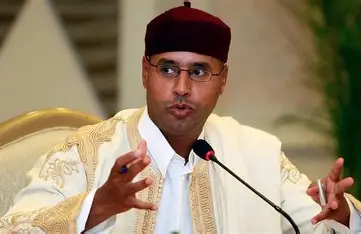
Data obtained from the United Nations Children’s Fund (UNICEF) from both the Stabilization Centre and Outpatient Therapeutic Programme (OTP) Centre, indicated that no fewer than 10, 155 children died of malnutrition in three northeast states of Borno, Yobe and Adamawa States in the last five years.
The UN Agency predicted that the figure might rise significantly due to the fact that figures for the remaining part of year 2021 (August to December) has not been collated and added to the existing ones.
However, the data further revealed that in the last five years, 1,434,584 children were admitted for malnutrition in both the stabilization centre and Outpatient Therapeutic Programme (OTP) center. Similarly, 1, 222, 134 children were treated and they recovered, while 20, 530 children were unable to recover.
For whatever reason, the data indicated that 74, 811 children defaulted in treatment, while several others were subjected to Multiple Micronutrient Powder (MMNP) which helped in their revival.
Deputy Director, Borno State Nutrition Officer, Abdullahi Madi, told journalists at three days media dialogue on child malnutrition in Maiduguri, Borno State, that the situation is beginning to improve for good but there’s need to sustain the momentum.
Meanwhile, the UNICEF Chief of Field in Maiduguri, Borno State, Samuel Sesay, said that years of insurgency in the region could be responsible for the high number of malnourished children in the region.
Sesay said the situation of malnutrition in the northeast has assumed an alarming situation, hence the amplified call for improved local and international interventions to salvage the posterity of the northeast Nigeria.
He said: “Evidently, households in the northeast are experiencing unprecedent levels of food crisis and hunger. Food insecurity, poor infant and young child feeding and care practices, as well as poor feeding environment, hygiene, and health services have been identified as the underlying causes of malnutrition or under nutrition in children.
“In northeast Nigeria, however, conflict, multiple displacements, destruction of sources of livelihood for households, destruction of basic infrastructure and services, climate change and the COVID-19 pandemic have been identified as peculiar contributors to the growing number of children affected by malnutrition or under nutrition.”
He, thus, stressed the importance of good nutrition on children’s development and it’s far-reaching impact on child education, health, adult earning power, individual and family finance, as well as the country’s economy.
“It’s unacceptable that children continue to bear the greatest burden of conflict, climate change and COVID-19. Ensuring good nutrition in children heips families and is a cheaper route to nation building.”
He reaffirmed the commitment of UNICEF to support government and non-government partners in the north-east region on early detection, referral and management of severe acute malnutrition in children.
He promised constant supply of ready-to-use therapeutic food in outpatient therapeutic feeding programme; deployment of community nutrition mobilisers in communities and IDP camps and establishment of mother-to-mother support groups.
(The Sun)








